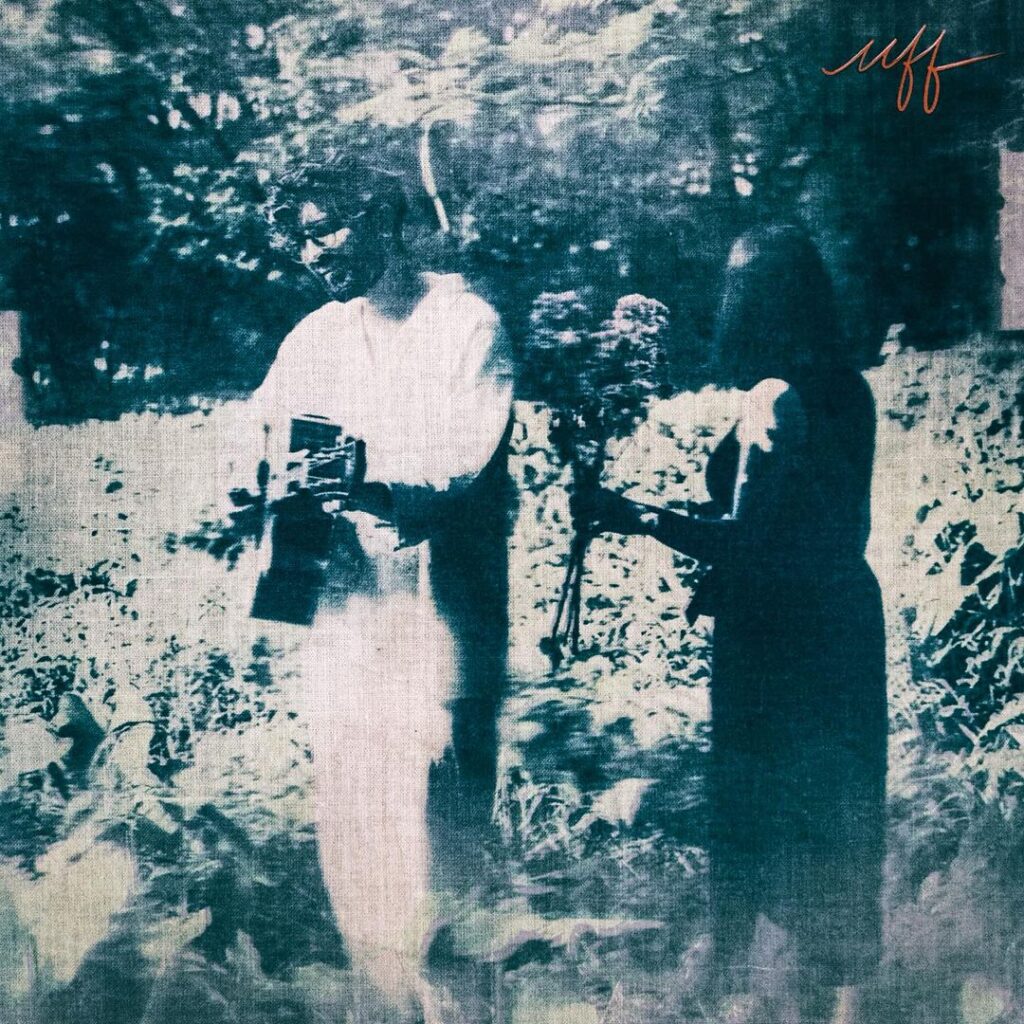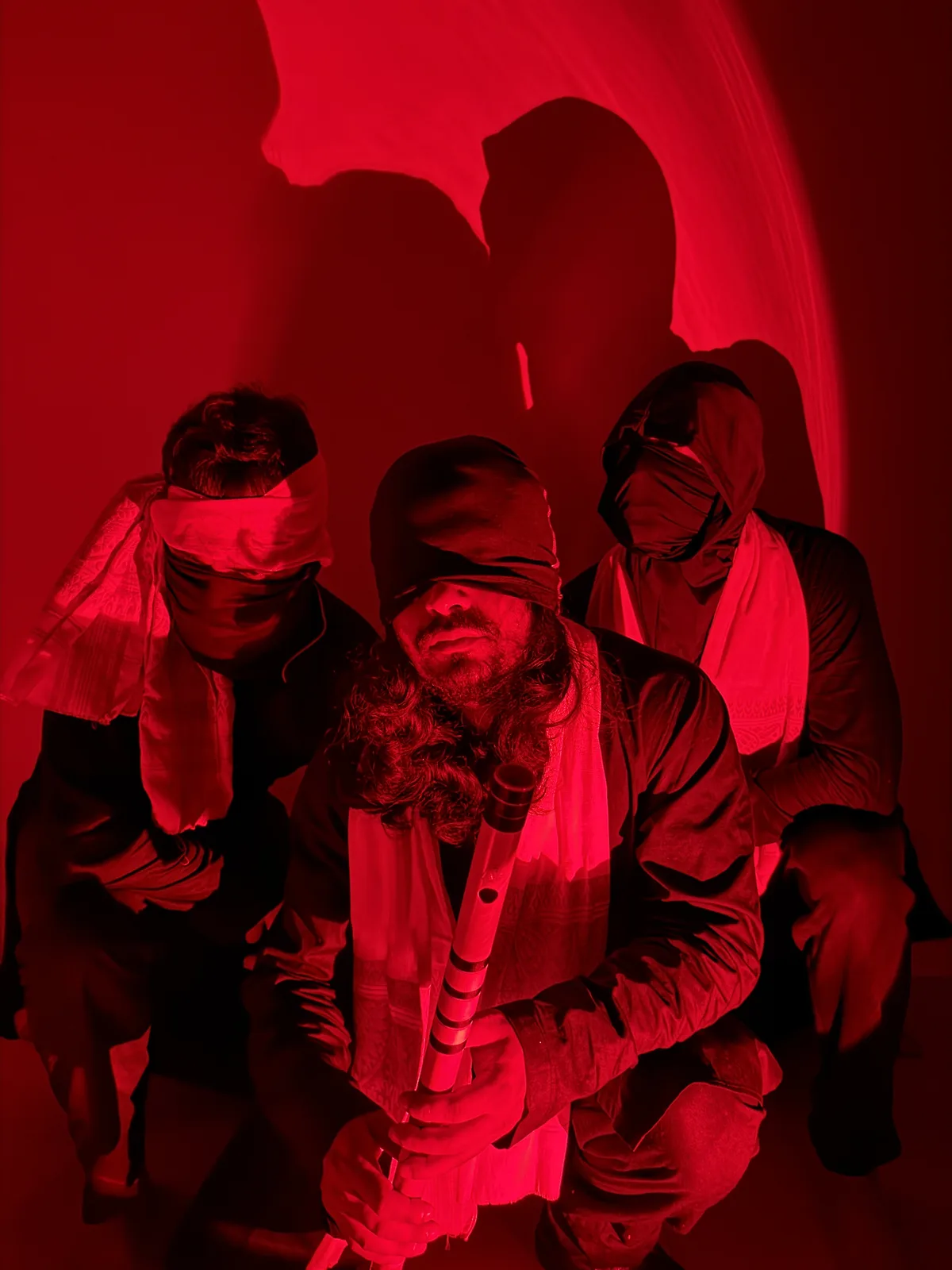It has been quite some time since Osho Jain has occupied his place as one of the most reliable names in the Indian indie music industry. His trademark gentle, playful cadence paired with understated production that magnifies the softer side of everything within has resulted in him accruing lakhs of listeners on Spotify. A new project, therefore, is inarguably exciting, for even the sporadic listener.
Uff is a 5 track, nearly 17-minute-long record, and has some of the singer’s most tender work so far. Uff, the titular first track, is slow — almost barebones, and sung over an acoustic guitar strumming, primarily is almost like a manifestation of crooning to oneself and the other. “Mera naam leke mujhko jab bulaaye / kapkapi tharthari aa jaaye / bin bataye agar woh saamne aa jaaye / duniya meri uthal-puthal ho jaaye” is almost candy-sweet, and yet Jain’s delivery makes it easy to down without gagging at the saccharine quality. This is a quality I have associated with most of the artist’s work overtime, he knows how to utilize his cadence in such a way that it makes his lyricism more earnest, believable, and honest — something we find almost a lost art in the art of independent artists with larger fan-bases these days.

Tu Hi, my favorite on the record, combines an electronic production with Jain’s trademark style. The understated style remains, but it is a level-up from the almost lullaby-esque construction from the last one. One of the most interesting parts of the track is a harmonium incorporation over the percussion line — it is a fun up-and-down act, where he makes his voice climb and roll, little by little. Dekha Hi Nahi, another stripped-down number, has Jain at one of his lyrical bests: “Main sheeshon kaa kamra thaa/ pathhar ka chehra thaa/ phir tu agaya”, as he cements himself as one of the proponents of lyrically meaningful songwriting in the Indian indie-scape.
Hadd Paar, the second most popular track off the synthy, modern, and polished. Something that has been wonderfully done on this EP is the slow and sure arrangement of the songs in an order that does not exhaust you. One stripped-down, gentle profession of love and kindred-ness, after another, as an onslaught would have been tiring, and also put you to sleep. The 5 songs are meticulously assorted to keep you attentive and yet relaxed. The layering of Jain’s baritone towards the end of the adds to the meditative, almost spiritual quality that the singer-songwriter is going for – as he sings, “Jahan zameen aasman milte hain/Wahan chalte hain/Hadd paar karte hain/Har toote patte pe jahan ishq ka doha likha ho/Gehra kohra ho magar rasta phir bhi dikha ho” in a Rumi-esque sentimentality.
The last track off the record, Rab Hai, magnifies the spiritual aspect that he is going for in the previous track. The lyrics are simple, with the crux of the song exemplified by these lines, “Tu hi tab tha tu hi ab hai/Kya tu rab hai?/Tu hi ab sab sab ab tu hi/Haan tu rab hai/Haan haan tu rab hai”. Momin Khan’s sarangi is the star of the song, at least for me, that adds gravity to the track that otherwise would have been somewhat of a gaping absence.
Jain’s Uff is a good introductory lesson for artists of Indian Hindiestan, of prioritizing musicality and lyricism – that is substance, instead of falling into the loop of releasing and re-releasing music that has no meaning for anybody involved. The 5-track length works, and while it is simple in its making, it is not mediocre or handled carelessly. It is, after all, always going to be about making good music, and not the amount of music — if you are inauthentic to yourself and all that you create, the artist gets it.





























